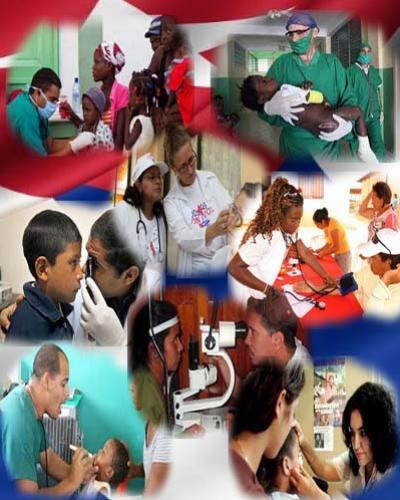
By Roberto Morejón
Cuban doctors in service in other latitudes confess their joy for being useful to the people, although they say they are moved when their patients cannot afford the cost of the tests required to reach an accurate diagnosis.
This is one of the vicissitudes of the more than 22,000 Antillean doctors deployed today in 57 countries on all continents, in many of whose scenarios poverty and lack of resources conspire against health activities.
But the professionals in white coats in those nations are looking for alternatives so as not to fail to attend to those who come to their offices and when they travel through villages, small towns and remote jungles.
Cuba celebrates this week the 60th anniversary of international medical collaboration, officially started in Algeria, although a brigade had previously carried out a mission in Chile.
The global statistics illustrate the arduous, useful, highly technical work, with an outpouring of altruism, will, sacrifice and courage, because in many places the circumstances are complex.
More than 605,000 Cuban health professionals and technicians have saved lives, cured ailments, eradicated diseases and quieted the pain of carriers of incurable pathologies.
Recently, when the pandemic crisis originated by Covid-19 and life was at stake, 58 Cuban medical collectives went to 42 countries to fight that disease.
In spite of the gratitude of the inhabitants of cities, towns and remote regions, the recognition of authorities and praise in meetings of international organizations, in the United States and in the hegemonic press the Antillean doctors are demonized.
They are often labeled as slaves in ignorance of their willingness to work in other regions of the world, in compliance with governmental agreements.
With the income that some authorities pay to Havana, since in many cases the service is provided free of charge, the largest Antillean island buys supplies for its health system and keeps its medical schools open.
Thousands of new doctors graduate from them every year, along with colleagues of other nationalities who, after gaining experience, often leave to work abroad.
Cuba, which supports the Henry Reeve contingent destined to work in the event of natural and other disasters, has just praised the performance of its envoys in Turkiye, following the earthquake.
The praise is extended to those who today continue their task stethoscope in hand and to those who imitated them in six decades.

